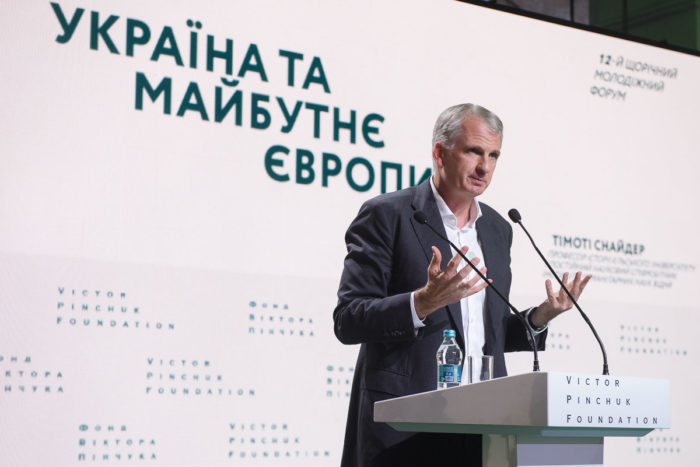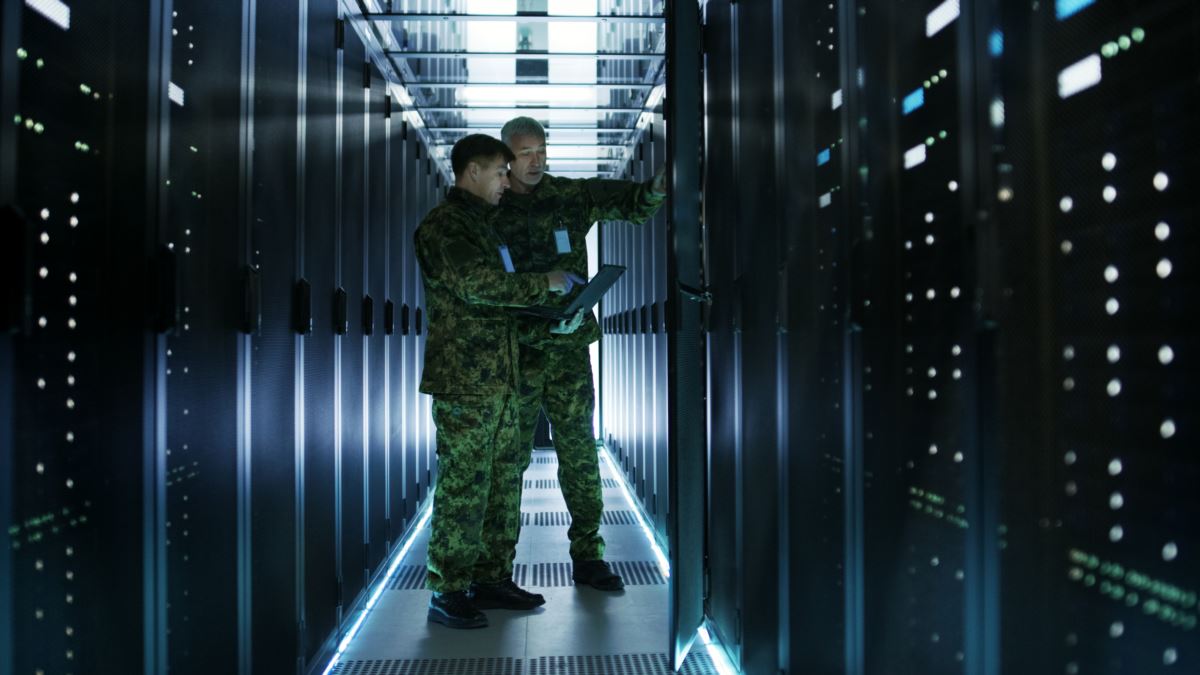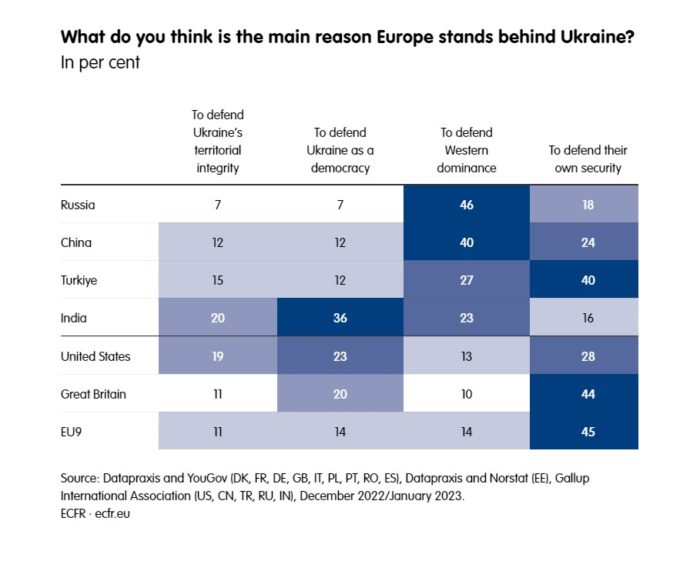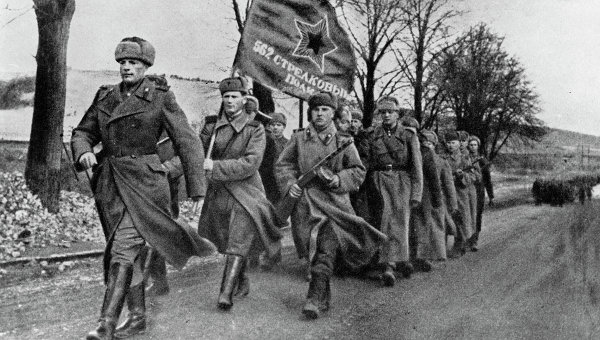In an interview with the Polish magazine Polityka, prominent American scholar of Central and Eastern Europe Professor Timothy Snyder explains Putin’s ultimate goal, why Russia's war against Ukraine is akin to genocide, why Putin has a more radical perspective than Stalin and why only Hitler had a similar plan, and why the fact that Ukrainians are fighting is so important for the whole world.
Putin’s goals and philosophy
Sławomir Sierakowski: What is Putin’s ultimate goal in this war?
Timothy Snyder: That’s no big secret: to destroy Ukraine as a state and exterminate Ukrainians as a nation. I’d like to make it very clear that such an idea is akin to genocide. If accomplishing that plan were to require - and that’s what it will require - physical extermination of Ukraine’s intelligentsia or exile to Siberia – then that’s what will happen.
SS: So, doesn’t that make Putin a softer version of Stalin, and an equally dangerous leader?
TS: He’s different. Stalin never doubted the existence of the Ukrainian nation and in a way, he was cautious of it, hence the Holodomor famine and the 1930s Great Terror in the Ukrainian SSR. Putin, who believes no Ukrainian nation exists, has a more radical perspective compared to Stalin; it takes us back to Hitler’s idea of human masses that can be quickly broken by willful violent actions.
Thus, we’re way beyond conventional politics, face to face with classical tyranny. We’re dealing with an aged leader whose mindset is based not on contemporary categories, but on the concept of eternity. From Putin’s perspective, facts don’t really matter. He either takes no notice of the practical barriers that we’re aware of or believes them to be western propaganda or a delusion. In essence, Putin sees the world as he himself perceives it.
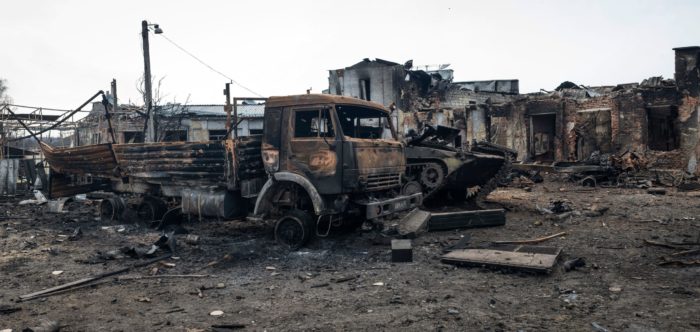
SS: And what does that mean?
TS: I’ve been following Putin for years, what he writes and speaks. He believes he’s another Prince Volodymyr the Great, whose purpose is to accomplish the latter’s mission that began over a thousand years ago, namely to restore Russia’s former empire by re-uniting Ukraine with Russia. Not only physically and in terms of territory and politics, but primarily in a dialectical way. Until this union takes place there is no Russia, it will emerge only after uniting with Ukraine.
SS: Will it then exist as a true super state or rather as a concept?
TS: Rather spiritually and metaphysically.
SS: You reached some very important conclusions in Black Earth: The Holocaust as History and Warning based on your analysis of Mein Kampf and other works by Hitler. You assessed him as the founder of a certain political philosophy. And not the first one of its kind to have caused tragic consequences. Is Putin also such a philosopher? He’s so inspired by the Russian soul that his perception is based on metaphysical categories. In other words, does he embody the Russian spirit?
TS:
I don’t really believe in the concept of the Russian spirit. But, if one follows Putin’s statements or reads articles hinting at his plans, the following can be noted: for at least ten years, he’s been repeating that Ukraine’s existence as a nation and a state has no foundation and no justification. And that God wants Russia and Ukraine to be united. He mentioned this in the [State] Duma following the 2012 elections. In 2013, Putin visited Kyiv and stated that the union must take place either way, because it’s God’s will and politicians cannot go against it. There were a number of such statements and I take them very seriously.
SS: What does destroying a state and a nation mean? Subduing? Integrating into Russia? Turning the country into a black hole like the Donbas? Russifying the nation as in the 19th century?
TS: Russification for sure, but it needs to be done quickly and using the simplest methods available. Assuming that the elite have been exterminated, then there will be no nation. This will leave Russian-speaking citizens and those who will soon become Russian-speaking.
Maybe I’m wrong, but implementing a long-term russification plan, as was the case under Brezhnev or Tsar Alexander, would be inconsistent. That scenario will be implemented if Russia comes to the conclusion that exterminating the elite wasn’t enough.
Even in Russia, there has been no historical precedent for treating the Ukrainian nation in this way. Only Hitler had a similar plan. The Soviets believed that the Ukrainian nation existed and that they could achieve some sort of compromise. At the time of the Russian Empire, there was no concept of a modern nation. And it’s not like the empire meant that the Russians could rule over others, for example, Ukrainians. The elite of the Russian Empire was not at all ethnically Russian and didn’t think in those terms.
Putin, on the other hand, constantly refers to his own historical and mystical concepts, and what he proposes - putting Hitler aside - is absolutely new and very radical.
Russia’s geopolitical shuffle toward China
SS: Putin’s advisers are struggling to understand his intentions. Fyodor Lukyanov, Vladislav Surkov and others write about Russia’s spheres of influence and the West’s failed promises. No one appears to have foreseen the horrific plan that you’ve described. So, what’s the rationale behind Putin’s worldview?
TS: First of all, all those ideologists, who, in fact, are mere commentators, refused to believe that this war would happen. Second, their comments are based on the kind of semi-rationality that Putin no longer cares about. And third, I believe there’s both an ideological and a tactical side to Putin. I certainly wouldn’t deny that Putin is still somehow managing the tactical side, but it appears to be getting weaker, while his ideological side is getting stronger. This results in his absurd geopolitical ideas.
If Putin were an actual geopolitical strategist, he would realize that a balance between the West and China should be maintained. But, he’s failed to do so. He artificially and needlessly creates a disastrous geopolitical situation for Russia, pushing the country, as well as its citizens towards such great dependence on China that there will be no remedy and no return.
SS: How will this union ultimately affect Russia?
TS: China doesn’t view this as a union at all. The Chinese regard Russia as a country that no longer needs to be conquered, because they can already get whatever they want.
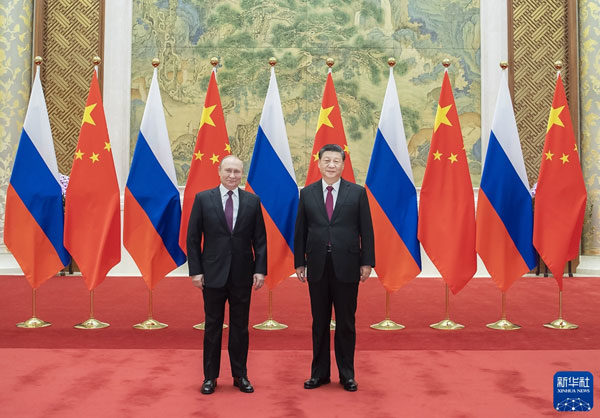
SS: Including its territories? After all, China remembers who took most of its territories...
TS: Focused on eternity, Putin is acting in a hasty and somewhat reckless manner. He’s delusional and believes - in fascist terms - that he can make his mark on history through violence. It’s quite the opposite with China. The Chinese demonstrate a long-term approach and understand that such brutal and rapid actions cannot and should not happen so frequently. They see that they don’t need to take any other actions with the Russians, that the current Russian government will willingly give them whatever they need. The Russians wish to believe that this is some sort of a union or partnership. And the Chinese speak the language of partnership as they please. But the two countries will never be on equal terms.
Russia’s position in its relations to China will be exactly the same as what happened to the Russian project in Ukraine: they will have their borders and their little tyrant, but all of it will be irrelevant, because the Russian economy will soon be dependent on China’s economy. Moreover, they’re fast approaching political dependence. Thus, we find ourselves in this absolutely new geopolitical environment. The United States don’t want this Russo-Ukrainian war, but they’re unable to stop it, at least not immediately. But, if the Chinese wanted to do so, they could stop it very quickly, almost overnight.
SS: Russia’s pace towards China contradicts the Russian identity, which was formed in Europe, doesn’t it?
TS: Viewed from a distance, it appears as a big problem for a leader like Putin. He has absolutely no regard for what Russians want. If you read what the Russian nationalists have to say, they’re trying to convince their compatriots that things will be great with the Chinese, that everything will be fine. When I read something like that I keep thinking: no, this doesn’t look at all convincing.
SS: What positions will others have in this new geopolitical environment - for example the Muslim world, including Iran, a country that’s also boycotted by the West? Apart from China, does Russia have any space for maneuvers at the global level?
TS: For some time, yes. Russia’s been content with its successful relations in the Middle East and with African countries. Such progress is psychologically of great importance for the Russians. However, all those efforts will be insufficient to create an independent Russian pole at the global level. Presently, there are very few places where Russian influence would prevail over the Chinese, with the exception of Syria… and probably Kazakhstan, where Russia was compelled to intervene in January after massive social protests.
SS: China still exercises influence over there. How else can one describe the fact that President Kassym-Jomart Tokayev refused to participate in the war together with Russia and Belarus or acknowledge independence of the so called “ORDLO republics” in the Donbas?
TS: He didn’t have to, and he realizes the consequences of such an intervention. Kazakhstan would now be struggling under western sanctions. Any sane post-Soviet leader can see that this invasion is criminal and irrational.
EU and US solidarity with Ukraine
SS: Suppose Putin manages to take over Ukraine. How will that affect relations between Russia and the EU?
TS: The sanctions will be in place for as long as Russian soldiers remain in Ukraine. This is war and occupation; I don’t think things will get back to normal soon. The way we see it from afar, it appears that such issues as morality and core values have become paramount, that the Europeans have mobilized and it’s no longer a strictly economical or geopolitical issue.
SS: Were you surprised by Joe Biden’s actions, his decisiveness and efficiency?
TS: What I like about him is his clarity and modesty. He also proved to be efficient in terms of tactics. The Americans have foreseen everything, almost to the day. They’ve clearly foretold the course of events. Even though they failed to convince the Ukrainians and the Europeans completely, at least they managed to create a respective atmosphere.
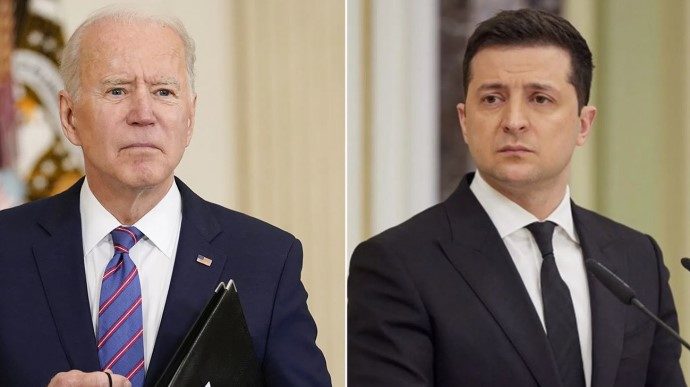
The important thing is that over the past 30 years, until Biden, each American President - whether Republican or Democrat - when speaking of external policy, opted for magical thinking, kept arguing that they were capable of anything. Whereas Biden says there are some things that we can do and some that we cannot. He also explained that Europeans should provide some assistance, because the US wouldn’t be able to manage this alone. It’s worked out very well. For me as an American it’s of utmost importance. As long as we don’t talk and think in magical categories, there’s a chance that our external policy will be efficient.
SS: Despite statements that American domination is over, the United States continues to lead the free world. America is strong and remains an important superpower. It’s managed to discipline Europe and even cause a geopolitical breakthrough.
TS: That’s not the way I see it. Neither the Americans nor the Europeans have played the fundamental role here; the Ukrainians have. Without them we wouldn’t be talking about America’s potential leadership or any breakthrough in Germany or the European Union. If the Ukrainians hadn’t fought back, the world would’ve been a much darker place. They’re buying time for us: comprehending things, taking action, ensuring cooperation, discussions… everything. We really owe it to the Ukrainians.
However, the sanctions come at a much higher price for the Europeans than for us Americans. The sanctions are of little importance to us, but this is not the case for the Europeans. We’re perhaps the most important partner, but I have to admit that Ukrainians are the moral leaders.
SS: How could such a breakthrough happen in Europe? Traditionally pro-Russian countries, such as Italy, have suddenly agreed to sanctions, while Germany has undergone a fundamental change and stepped aside from its principled pacifism. Surprisingly, Germany is sending its deadliest weapons to Ukraine. Sweden and Finland have abandoned their neutrality.
TS: My response is threefold. First, personalities do matter in history. Things would’ve been different without Zelenskyy. Germany and the EU made some bold decisions after his powerful speeches in the European Parliament and the European Council. Second, the EU, albeit in a traditionally vague and imprecise manner, consistently refers to World War II. At long last such a war occurred in Europe - an absolutely unjustified, terrifying and brutal war. The references to WWII have proved to make sense and have become relevant once again. The resemblance is obvious. Third, and most important, Putin’s ideology and propaganda have exhausted themselves.
Eight years ago, they were telling the same old stories about Ukrainian Nazis and fascists, about Russian-speaking citizens etc. They managed to win the propaganda war back then. This time, however, the Europeans have learnt their lesson, as the Russian propaganda was much less targeted or not targeted at all. The Ukrainians are much better at communicating; they can speak foreign languages; they speak English fluently; they’re smart and have better-trained diplomats and better-known intellectuals. In addition, the Germans have undergone a drastic change in their mentality.
SS: We choose not to think of this at the moment, but what does Germany’s militarization mean for Poland in the long run? Prudent politicians won’t always be in power in Berlin.
TS: Germany’s the most important democratic state in Europe. And I’m pleased to say that it’s becoming more and more balanced in that respect. The absence of a regular army and its attitude toward the army artificially weakened the Germans. I don’t expect a revival of German militarism, not at all.
A number of huge and positive changes have taken place. Every Pole knows that Germany will be buying and transferring weapons for Ukraine’s fight against Russia, that German has remilitarized because of Russia, not Poland. Any potential union with Russia is out of the question. Could the Poles ever say it doesn’t concern them? It has always concerned them. Before World War II, occasionally during World War I, but finally not anymore. Polish politicians keep searching for a German enemy, but have found none so far.
Will Putin and Russia survive?
SS: What about Putin? Will he be able to survive this war?
TS: The only thing we know for sure is that no tyrant has ever become immortal. It’s hard to predict specific events that might cause his downfall. I guess the war was his final act, willingly chosen by himself. He believes there’s some kind of harmony between his life and Russian history and that such a dramatic gesture was necessary. He’s trying to follow through now and he’s quite determined, partially because Zelenskyy’s still alive. Not yet under Putin’s thumb.
But, sooner or later Russia will want, if not to return to the West, to at least begin moving in that direction. The war would’ve been impossible without the military censorship imposed on Russian society. The need to learn the truth will grow; problems will escalate until the bubble bursts, like it did in the late 1980s.
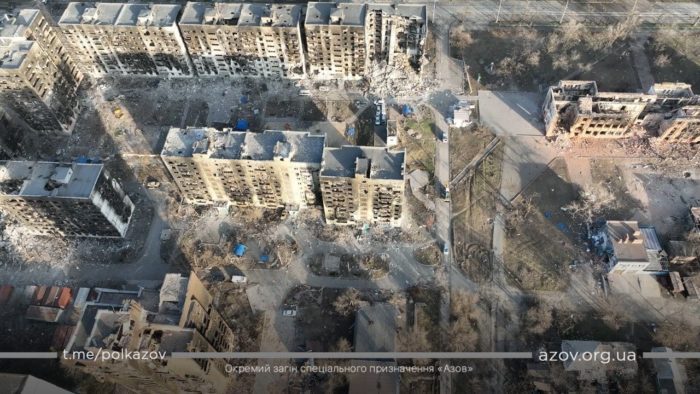
SS: What role will Navalny play in this?
TS: Putin has issues with rivals, democracy, younger men and fearless people. Putin is the kind of guy who is afraid of different things, such as sickness, the future. Moreover, dealing with people who aren’t afraid of him is a big problem. So, he’ll use all the power of the Russian state to fight such people. One can draw a parallel between Zelenskyy and Navalny. Putin hates them both. It’s important that Russia has Navalny, a Russian who tells the truth, who has no fear, whose motto is "no fear." It has a huge symbolic meaning and I hope it’s more than just symbolic.
SS: Ukraine is fighting courageously and is acting wisely. If Ukraine succeeds, should it be admitted to the EU?
TS: Yes.
SS: Will we witness another collapse of Russia, such as in 1989-1991?
TS: I hope not. I hope a new Russia will arise, one that will focus on its own interests, but willing to talk to us. One that will be able to establish a balance between China and the West - all the better for all of us.
SS: You’re quite familiar with Russian political culture. From your perspective, is there any chance of seeing a democratic Russia, or at least a Russia that will give up its imperial ambitions?
TS: Yes, but not right now. Maybe in a year. This could be the agony of the Russian imperialism. Let me remind you of a very wise Polish doctrine introduced by Giedroyc, according to which the end of imperialism is the key to Poland’s future.
SS: This is subject to the acceptance of borders. As far as Poland is concerned, it means letting go of Vilnius and Lviv…
TS: Only when a former empire comes to terms with its current borders can it become a normal state and society. For instance, Poland came to accept its borders thanks to Giedroyc, Kuroń, Geremek and Skubiszewski. Putin’s agony over Ukraine could herald the last stage of Russian imperialism.
Here’s what I wish for the Russians: for this to come to an end as soon as possible. Russian imperialism has created a horrifying situation for Ukrainians; it’s literally killing them. But it’s also fatal for Russian sovereignty as it will lead to civilizational defeat, making Russia dependent on China. It’s irrational. Also, it allows leaders such as Putin to rule without actually ruling, to organize a circus, and demonstrate power without actual politics.
I’m not sure if democracy will ever exist in Russia, but I’m convinced that a semi-Western, normal Russia is possible.
SS: Is there anyone in the Kremlin who also thinks that way? Who tells Putin the truth about the world?
TS: Unfortunately, no one.
Related:
- Should Ukraine take over the Russian language? Scrutinizing Prof. Snyder's arguments
- History as a weapon in Russia's war on Ukraine
- Putin likely to view the West's declarations about Ukraine as appeasement, as Hitler did their predecessors' words about the Rhineland, Pastukhov says
- The dangers of a Russo-Ukrainian peace agreement and premature lifting of sanctions
- Three weeks of Russia's war against Ukraine in photos
- Western policies of appeasement produced a monster... again

